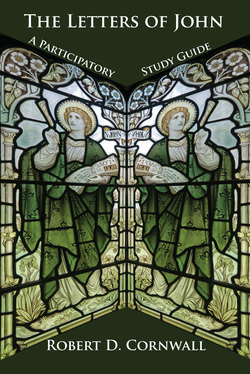Читать книгу The Letters of John - Robert D. Cornwall - Страница 5
На сайте Литреса книга снята с продажи.
ОглавлениеPreface
“What the world needs now is love, sweet love.” Love is a central theme in the letters of John. The author of the first letter declares that “God is love.” Indeed, we are to love one another, because “love is from God” (1 John 4:7). There is more to these letters than a message of love, or perhaps I might put it this way. While love stands at the heart of these letters, there are disturbing elements to these letters that might raise questions about the nature of the love proclaimed. In any case, these letters, which likely date to the end of the first and perhaps well into the second century give us a glimpse of how early Christians struggled to live faithfully in difficult times.
This study guide is intended to invite users (whether individuals or groups) to dive deep into the biblical story. You may find this journey into the text difficult at some points. You may also find it to be liberating at other points. The Bible cannot be read flatly, as if everything is equally giving voice to God’s word. At the same time, when approached with care and reverence, I believe we can hear a word from God even in passages that shock and dismay us. We may decide to argue with the text, saying no to its implications. That is an appropriate way of engaging the text.
The series in which this study appears is intended to bring heart and head together. As the Shema, the Jewish confession of faith, invites adherents to “love the Lord your God with all your heart, with all your soul, and with all your might,” not only keeping the commandments, but also reciting them to one’s children, talking about them, binding them on your hands, fixing them on the foreheads, and writing them on the doorposts and gates (Deuteronomy 6:4-9), so we will seek to love God with our entire being.
This book offers a study of the three Letters of John. It is part of the Participatory Bible Study series that was developed by Henry Neufeld, which seeks to build upon the devotional principles of the lectio divina model of reading scripture. It is an invitation to inhabit the text of Scripture, so that one might experience oneness with God. Although this has a strong devotional foundation to it, the method also invites critical investigation of the text.
The letters of John offer us an interesting opportunity to bring these two elements of biblical study together. There is much here that stirs the soul and draws one into the life of faith. There is theology and spiritual practice in these letters. These are pastoral messages that speak to congregations that may be experiencing spiritual challenges. In addition, it’s possible that 1 John, which has few marks of a letter, could have been a sermon that was later shared with different congregations. There are also important critical questions to be answered as one explores these texts. Because we don’t know the identity of the author(s) or the destination of these letters, it is difficult to read them contextually. We don’t know the full back story to the words we read here. Many are attracted to the words about love, but they may also find the words about church discipline disturbing. My hope is that at the end of the study, participants and readers will not only have a better understanding of the text, but also find themselves moving toward a more mature faith in God. If we take the author of 1 John at his word, then the intention here is that what appears on the page was written “to you who believe in the name of the Son of God, so that you may know that you have eternal life” (1 John 5:13). It would appear that there is some uncertainty about such things as eternal life. Discernment of spirits is called for, for not all who claim to represent Christ are truly representatives of his mission. Thus, we have a word of hope and a word of warning.
Faith and understanding are not mutually exclusive categories, and this study seeks to draw them together. It is a study that can be undertaken by individuals in the quiet of their own homes, but it is also designed for use by groups. So, whether in groups or alone, my prayer is that you will experience the blessings of God’s continuing grace.
Before the journey is undertaken, I must give thanks to Henry Neufeld, my publisher and editor for inviting me to participate in this series of studies. Henry laid the format of the study, which I have followed closely, but he also gave me the freedom to set my own tone and texture in writing this study. I’d like to also thank the members of my Wednesday Bible Study groups at Central Woodward Christian Church, who have been attentive to the study of scripture and have pushed themselves and me into new understandings of the faith. Finally, I wish to thank my wife Cheryl who has given me room to write works such as this, but most of all has been a constant companion in life.
